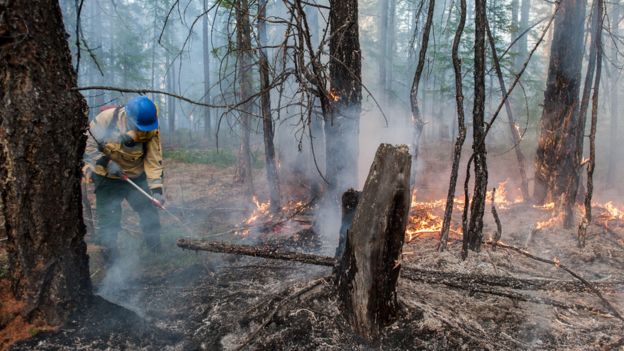The assessment considers natural variability as well as the impact of carbon emissions from human activities - however the models don't take account of the fall-off in CO2 emissions caused by the coronavirus pandemic.
The WMO says this is unlikely to affect temperatures in the early 2020s.

"The WMO has repeatedly stressed that the industrial and economic slowdown from Covid-19 is not a substitute for sustained and co-ordinated climate action," said Prof Petteri Taalas, the WMO's secretary general. "Due to the very long lifetime of CO2 in the atmosphere, the impact of the drop in emissions this year is not expected to lead to a reduction of CO2 atmospheric concentrations which are driving global temperature increases.
"Whilst Covid-19 has caused a severe international health and economic crisis, failure to tackle climate change may threaten human well-being, ecosystems and economies for centuries. Governments should use the opportunity to embrace climate action as part of recovery programmes and ensure that we grow back better," he said. If the 1.5C threshold is broken in one of the coming years, the experts stress it won't mean the targets are invalid.
However it will, once again, underline the urgency of significant emissions cuts to prevent a long-term move to this more dangerous, warmer world.
Source: BBC News